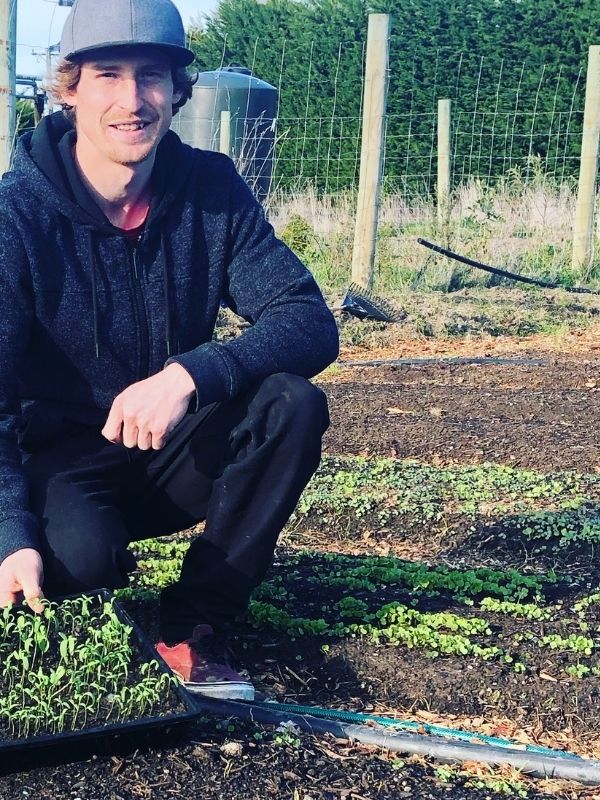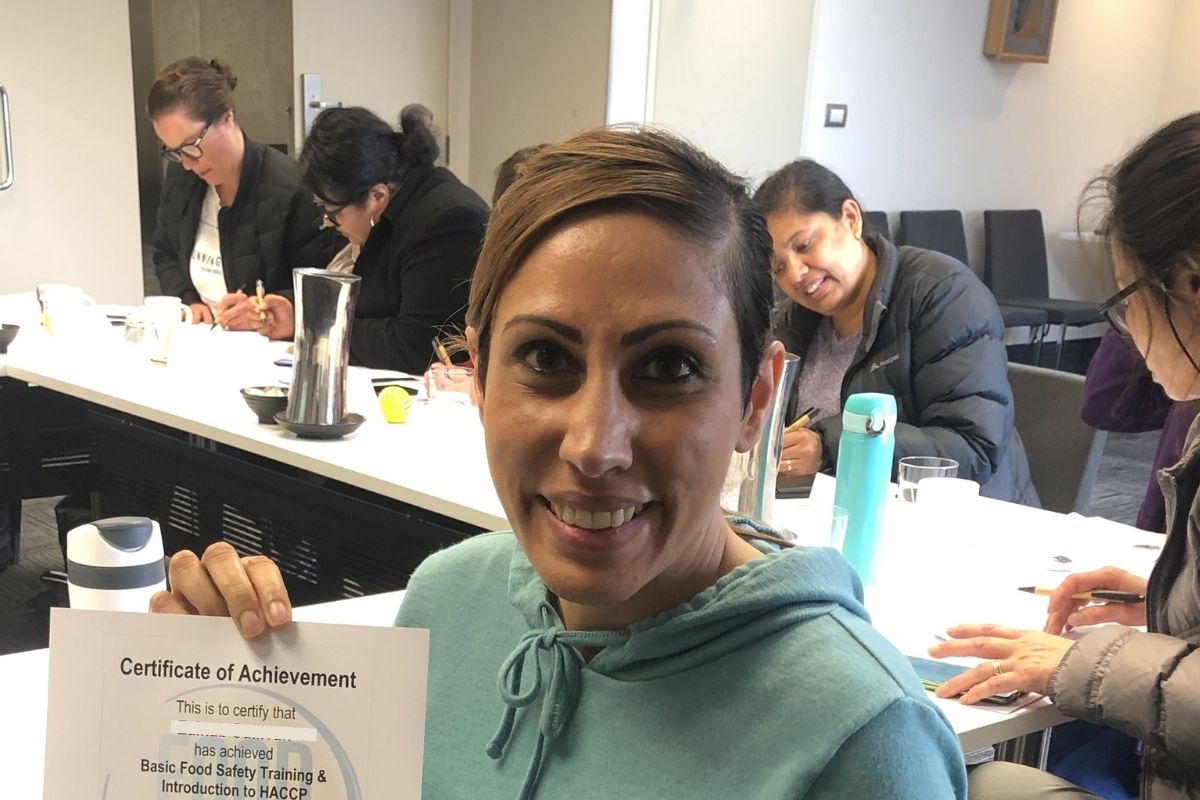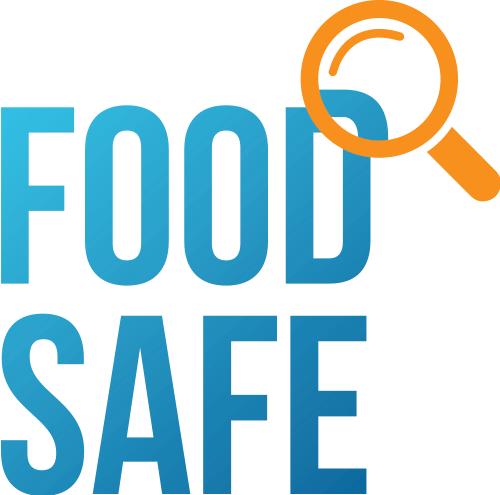Basic Food Safety
This course is approved by all New Zealand Councils and Verifiers, and certification auditors globally. Expert-led basic food safety and hygiene course by NZQA Registered PTE.
About our Food Safety Course
If your business or role involves handling food — this course is designed for you.
Our food safety course is:
✅ Accepted by Councils, MPI and Verifiers
✅ Follows best food safety practices in line with the Food Act 2014, Food Regulations 2015, and local council bylaws in New Zealand and internationally.
✅ Delivered by Food Safe, an NZQA-registered training company (PTE)
✅ Also referred to as Food Safety Certificate NZ, Food Handling Certificate NZ, Food Hygiene Certificate and Food Handlers Certificate.
Course details:
- Course Duration: 5 hours
- Delivery options:
- LIVE Online via Zoom video conferencing
- In person, at select locations (Auckland, Hamilton, Christchurch) and on demand at client sites
- Training by: Qualified ISO 22000 & 9001 Lead Food Safety Auditor
- Approach: Visualized, show-me-how videos and fun style of learning
Learners gain:
✅ Recognised Certificate of Achievement, and
✅ Useful food safety skills and knowledge
Our Level 2 Food Safety Certificate Course is trusted by a wide range of sectors and learners who choose to train with us, including:
- Hospitality and Retail
- Home Food Businesses, Farmers, and Night Market Vendors
- Mobile Food Trucks
- Health Care Providers
- Childcare Centres
- Schools, Universities, and Other Education Providers
- MSD Job Seekers
- Food and Packaging Companies
- Maraes and Kōhanga Reo
- Community and Charity Groups
- Events and Catering Businesses
- Super yachts and Offshore Vessels
- Pack houses and Farms
Basic Food Safety Certificate
Training Course Content
- Knowledge of basic food safety and why this course is an investment
- Answers to questions such as: Can I cook food from home for sale? What does a verifier look for when auditing me? What does jargon such as a “Level 2 National Programme FCP” mean?
- Information on effective personal hygiene
- Norovirus, Rotavirus, RSV, and COVID-19 controls to reduce food handling hazards
- An understanding of the science of allergic reactions, immune response, food intolerance, and special diets such as Celiac.
- Knowledge of the primary allergen groups (applicable worldwide) and implementing an allergen identification list for a Food Control Plan
- Effective allergen management tools in a food business such as labelling and cleaning.
- Learning key HACCP training NZ temperatures to global standards including both Celsius (°C) and Fahrenheit (°F), and recording temperature of high-risk food. This training has been used by our trainees around the world.
- Knowledge of hazards that cause foodborne illness and food spoilage in a food business including pathogenic bacteria, mould, and viruses
- Knowledge of methods used to control hazards that cause foodborne illness and food spoilage in a food business.
- Identifying common examples of food safety risks
- Pest control methods and how to control pests
- Criteria for verifier inspections and audit checklists
- Overview of legislation including the Food Standards Code 2002, Food Act 2014, Food Regulations and how the law applies to a workplace or food business
- Knowledge of the key elements of a Food Control Plan – FCP + 3 Step Corrective Action – Codex Alimentarius
- Practice filling out key food safety records – Food Control Plan Diary
- Gain insights into Council and Verifier Audits, and how to achieve an A Grade Council Audit
- Extra research and microbiology information based on our MOC with AUT University – School of Applied Sciences.

Suitable for:
Our Food Safety Certificate (also known as a Food Hygiene Certificate) is widely used by food businesses, workplaces, and individuals across many industries, including:
- Hospitality & Retail
Cafes, Bars, Restaurants, Takeaways, Bakeries, Pizza Shops, and Hotels
Supermarkets, Dairies, and Convenience Stores
Food Sampling Promotions and Snack Vendors - Home & Market Food Businesses
Home-Based Food Businesses
Farmers Markets (Baking, Jams, Sauces)
Night Markets
Mobile Food Trucks, Coffee Carts, Trailers, and Real Fruit Ice Cream Stalls - Early Childhood & Education
ECE Cooks and Early Childcare Centre Services
Food Allergy Care Providers
Schools, After-School Care, and School Holiday Programs
School Lunch Programs, Tuck Shops, and School Cafeterias
Universities and Education Providers - Healthcare & Community Support
Hospitals, Medical Centres, Hospices, and Post-Surgery Care Providers
Residential Care, Drop-in Meals, Birthcare, and Midwives
Aged Care Facilities, Rest Homes, Retirement Villages, and Meals on Wheels - Māori & Community Food Initiatives
Marae, Kōhanga Reo, and Iwi Whānau Health Care
Mātauranga Māori approaches to Kaimoana Harvesting and Homekill - Employment, Upskilling & Return-to-Work
MSD Job Seekers (WINZ)
Transition-to-Work and ACC Return-to-Work Programs
Anyone looking to upskill, re-tool, or strengthen their CV for a food industry job
People preparing for Food Safety Audits by MPI Verifiers or Council EHOs - Events, Catering & Food Rescue
Events, Function Catering, Weddings, Camps, and Conferences
Community Care, Churches, Youth Groups, Food Rescue, Pātaka Kai, Food Hubs (e.g., KiwiHarvest)
Charity Groups - Primary Production, Processing & Export
Horticulture Sector, Fruit Picking, Packhouses, and Farms
Mushroom, Sprout, Microgreen, and Berry Growers
Wild Food Collectors and Foragers
Seafood Processing (Fish, Pāua, Kūtai, Kina, Pipi, Cockles)
Meat, Poultry, and Dairy Export Companies
Butchers, Smokehouses, Jerky and Sausage Processors
Primary Processing (Slaughter) Businesses, including Halal and Kosher Operations
Pet Food Companies
Honey Processing Businesses
Water Bottling, Beverage, Wine, Beer, and Drinks Producers
Cold Storage, Supply Chain, Logistics, and Warehouses
Food Importers, Distributors, and Exporters
Operators with Food Control Plans (FCP), National Programmes, and Risk Management Programmes (RMPs)
Businesses operating under FCP Templates, Custom FCPs, or National Programmes (NP1, NP2, NP3) - Maritime & Offshore Operations
Ships, Rigs, Super Yachts, and Offshore Vessels — Galley Crew, Pursers, Stewards, and Technical Crew (Training delivered by an expert trainer with global experience to international standards)
Provedores and Chandler Maritime Suppliers - Tourism & Accommodation
Tour Guides, Farm Stays, Bed & Breakfast Operators, Tourism Companies, Ferries, and Airbnb Hosts - Home-Based Care & Special Diet Support
Home Carers, Babysitters, and Au Pairs supporting people with special dietary needs - Newcomers to New Zealand & Global Travellers
People new to New Zealand seeking seasonal work on farms, ski resorts, or in food businesses
Those gaining recognised food safety training for an Overseas Experience (OE)
If your work or future plans involve handling food — this course gives you the knowledge and confidence to meet food safety requirements and protect people’s health.



Maritime Food Safety Training
Ideal for handling food & beverages onboard, including:
Nurses & Nannies on superyachts, Youth staff & Tour guides, Pursers, F&B Managers, Hospitality Officers, Captains: Upskill crew – Dry dock / World cruises, Inventory & Store Managers, Chandlery & Marine Suppliers, Superyacht Food Buyers & Executive Chefs, & Supply Chain Managers.
Meets Maritime Food Safety Certificate requirements:
✅ Expert Instructor (Worked at sea for 6+ years + ISO 22000 Auditor)
✅ Level 2 certificate (plus advanced concepts!)
✅ NZQA-verified & international standards (USPH; Global Allergens; °C/°F)
✅ Currently used by many ships, rigs, and maritime companies
📑 Meets ILO and Maritime Labour Convention 2006 – MLC Amendments 2022 – Regulation 3.2 – Food and Catering Requirements
Food Safe on Air
Why Choose us for your Food Safety Certificate Training?
- We have collaborated and delivered food safety and hygiene certification training for a number of performance-fuelled organizations and global brands.
- The topics we cover and the information we provide on food safety is the very latest.
- Students gain knowledge and learn in an engaging and interactive environment
- Our course presentation style suits all learner types. We use slides, pictures, and a show-me-how approach to our food safety training.
- Food Safe Trainers are industry experts with Lead Audit ISO 22000 qualifications and have extensive practical experience in high-compliance food manufacture, which we bring to the classroom.
About Food Safe
Food Safe Ltd is a Category 1 NZQA-Registered PTE. Our food safety courses comply with Council Food Safety Bylaws, Verifier Audits, Food Control Plans, and Risk Management Programmes right across New Zealand.
Our food safety training is trusted by both well-known New Zealand and Global food companies and heaps of small teams too!

Food Safety Training Delivery
We deliver Expert-Led Online Food Safety Courses and On-Site Food Safety Certificate NZ Courses and Training across New Zealand.
ONLINE FOOD SAFETY COURSES:
Delivered LIVE Online via video conferencing
ON-SITE FOOD SAFETY COURSES:
For your convenience, we hold our Food Safety Certificate NZ course and our other food safety training courses at a number of locations across New Zealand. This includes food safety courses in Auckland, Christchurch, and Hamilton.
We have successfully delivered customised food safety training courses at companies from South Island to the Northland and across from Waiheke in the east to Hokitika in the West!
We go well beyond just basic food safety training to nurture your business plans post-training. One of our invaluable services includes an EXCLUSIVE and passionate post-training Facebook community support group. Our former trainees and successful business owners help support and guide each other on their food business journeys.
Food Safety Training Locations
In addition to training options New Zealand wide our Food Safety Certificate Auckland Course is delivered at Grey Lynn, Auckland and services the following areas:
- North Shore, Albany, Auckland: Food Safety Certificate North Shore for the convenience of Aucklanders living on the North Shore Area from Birkenhead to Orewa
- Grey Lynn, Auckland: For the convenience of people in the CBD, Viaduct Ponsonby, New Market, Parnell, Onehunga, New Lynn, Henderson
- Manukau, Auckland: Food Safety Course Manukau: For the convenience of people who also live in Papakura, Pukekohe, Papatoetoe, Takanini, Manurewa, Mangere, East Tamaki, Howick & Flat Bush
A great perk we include in our Auckland and all NZ courses is free off-street parking, an invisible and additional cost you need to consider when choosing your food safety course provider.
Our basic food safety course includes select FCP resources in Te Reo Māori, Mandarin 普通话, Hindi हिंदी, Korean 한국의, Thai ภาษาไทย, Khmer/Cambodian, and Vietnamese Việt.
Training Location: Christchurch
Russley Golf Club & Function Centre
428 Memorial Avenue
Christchurch, New Zealand
Training Location: Hamilton
Ventura Inn & Suites
23 Clarence Street
Hamilton, New Zealand

Food Safety Certificate: How long does my Food Safety Certification last?
- Best practice for Cafes and Restaurants: Refresh your food safety course knowledge and renew your certificate every 3 years at the latest.
- Food Manufacture, Customised food Control Plans & Risk Management Programmes: Refresh your course knowledge and renew your certificate every year.
99
1000
100
HOW IT WORKS: Steps to Book Your Course
FAQs
Do I have to do a Food Safety Assessment?
Yes. At the completion of your training, your trainer will give you an assessment, covering food safety topics, to complete. This assessment requires no typing or writing for you to do. Only yes/no, tick box type of answers. You have to achieve 70% to pass your assessment and to receive your food safety course certification.
Why choose Food Safe’s Basic Food Safety and Hygiene Training instead of NZQA Unit Standard 20666 for compliance in NZ & Australia?
Basic Food Safety & Hygiene Training (Food Safe) vs NZQA Unit Standard 20666: Coverage & Compliance (NZ & Australia)
A visual comparison of Food Safe’s Basic Food Safety & Hygiene Training with NZQA unit standard 20666.
The table below highlights MPI and FSANZ compliance topics, New Zealand Food Control Plans, Australia 3.2.1 Food Safety Programs, Risk Management Programme (RMP) content, and practical skills (e.g., thermometer calibration, allergen management, audit readiness) for food businesses across New Zealand and Australia.
| Key Topics & Outcomes | Food Safe Limited – Basic Food Safety & Hygiene Training Certificate | NZQA Unit Standard 20666 |
|---|---|---|
| Microbiology: bacteria, moulds, yeasts (time, temperature, food type, moisture, pH, oxygen) | ✅ | ✅ |
| Cross-contamination prevention: personal hygiene, handling, cleaning & sanitising, waste, storage | ✅ | ✅ |
| Controlling micro-organisms: cleaning, heating, refrigeration | ✅ | ✅ |
| Audit success: how to score 100% with Environmental Health / MPI verifier audits | ✅ | ❌ |
| A-grade outcomes (council grading) | ✅ | ❌ |
| Food Control Plans (FCP) & National Programmes (NP1, NP2, NP3) & Risk Management Programmes (RMP) | ✅ | ❌ |
| Food Safety Programs 3.2.1 Australia | ✅ | ❌ |
| Food safety law & legal duties (Food Act 2014, Food Regulations 2015) | ✅ | ❌ |
| Australia New Zealand Food Standards Code (FSANZ) | ✅ | ❌ |
| Animal Products Act 1999 & RMP requirements (where applicable) | ✅ | ❌ |
| How to register your food business (MPI / council) | ✅ | ❌ |
| Water quality requirements & testing | ✅ | ❌ |
| Food poisoning: illness management, eg Listeriosis & viruses | ✅ | ❌ |
| Critical Control Points (CCP) with specific food examples (e.g., chicken) | ✅ | ❌ |
| Validation & cooling-down requirements | ✅ | ❌ |
| Personal hygiene best practice | ✅ | ❌ |
| Proper handwashing technique & Staphylococcus aureus control | ✅ | ❌ |
| Viruses overview: Rotavirus, RSV, COVID-19, Hepatitis A (and more) | ✅ | ❌ |
| Norovirus control (Ministry of Health guidance) New Zealand & Australia | ✅ | ❌ |
| Food safety hazards (unsafe food) with examples & risk reduction | ✅ | ❌ |
| Date labels & stock rotation (FIFO) | ✅ | ❌ |
| Thermometer types & calibration (boiling/ice method) | ✅ | ❌ |
| Critical temperatures in both Centigrade °C and (Fahrenheit °F when applicable) | ✅ | ❌ |
| Allergen management: FSANZ & global allergen groups | ✅ | ❌ |
| Food allergies vs intolerances (NZ, Australia & global) | ✅ | ❌ |
| Special diets: medical, cultural (e.g., Halal, Kosher) if required | ✅ | ❌ |
| ECE Child Care & Te Kōhanga Reo: minimise choking hazards | ✅ | ❌ |
| First aid kit requirements | ✅ | ❌ |
| Pest control | ✅ | ❌ |
| Environmental management | ✅ | ❌ |
| Food recalls (NZ & global) & mock recall procedures | ✅ | ❌ |
| Corrective actions & complaint management | ✅ | ❌ |
| Training suitable for: cafés, restaurants, ECE, schools, food trucks, charities/NGOs, supermarkets, home-based, job-seekers, aged care, hospitals, bottling/packaging/food manufacturing, honey, and any business handling food | ✅ | ❓ |
Ready to get certified? Book Food Safe’s Category 1 NZQA-registered training (online via Zoom or at your site). Ideal for NZ & Australia food businesses aiming to pass audits first time.
Is the Food Safety Assessment hard?
As long as participants are attentive in class and are taking notes along the way, the assessment is not hard. Participants may refer to their notes during the open-book assessment.
When will I receive my Food Safety Certificate?
People who pass the course will receive a Food Safety Certificate of Achievement, on the day of the training, on successful completion of the assessment.
What happens if I do not pass my Assessment?
Your trainer will ask students who don’t pass [Not Yet Achieved] to take the assessment again. You can take the assessment as many times as you like. You will not be charged anything additional for taking the assessment again.
Do I have to prepare before coming to class?
No prior knowledge or homework is required. Your trainer will coach you about food safety methods and food safety risk controls including record-keeping and other relevant food safety topics and information in class.
What kind of job can I get after I achieve my Food Safety Certificate?
Our trainees have applied for roles in Cafes, Supermarkets, Childcare centres, Hospitals, Food Companies, Community Centres, Maraes, School Cafeterias, and Aged Care facilities. A number of our trainees have also set up their own successful home food businesses.
Food Safety Guidance for Food Act 2014
All new food businesses need to register under the Food Act before they start selling food. Check how the law applies to your business. Use the Where do I fit? tool on the MPI website. The tool will tell you whether you need to use a food control plan or national programme.
You’ll need to register with your local council or MPI. This depends on where you operate, and what type of plan or programme you are registering.
What can food businesses learn from New Zealand’s food safety incidents and recalls in 2025?
Food Safety Analysis
New Zealand Food Safety Incidents & Recalls | January – August 2025
📋 Introduction
New Zealand’s food safety surveillance system, managed by the Ministry for Primary Industries (MPI), continues to demonstrate proactive consumer protection through systematic monitoring and rapid response protocols. The 2025 data period reflects the ongoing evolution of food safety challenges in an increasingly complex global supply chain environment. Building on the foundation of 70 consumer-level food recalls managed in 2023, the current year shows consistent patterns in incident categories while revealing emerging trends in contamination sources. The MPI’s collaborative approach with food businesses ensures that potential risks are identified and addressed before widespread consumer exposure occurs. This analysis examines the distribution and characteristics of food safety incidents from January through August 2025, providing insights into the effectiveness of New Zealand’s food safety framework.
📈 Monthly Food Safety Incidents Distribution
| Month | Number of Incidents | Primary Category | Response Time |
|---|---|---|---|
| January | 5 | Undeclared Allergens | < 24 hours |
| February | 4 | Microbial Contamination | < 24 hours |
| March | 8 | Foreign Objects | < 12 hours |
| April | 6 | Undeclared Allergens | < 24 hours |
| May | 5 | Labeling Errors | < 24 hours |
| June | 4 | Chemical Contamination | < 12 hours |
| July | 7 | Microbial Contamination | < 24 hours |
| August | 6 | Undeclared Allergens | < 24 hours |
🚨 Undeclared Allergens (40%)
Undeclared allergen incidents continue to dominate New Zealand’s food recall landscape, representing the highest risk category for consumers with specific dietary restrictions and allergies. These cases typically involve manufacturing errors where products contain milk, eggs, nuts, wheat, or soy without appropriate labeling disclosure. The complexity of modern food production facilities, where multiple products are processed using shared equipment, creates ongoing challenges for complete allergen segregation. Cross-contamination during ingredient sourcing, processing, or packaging stages can result in trace amounts of allergens that pose serious health risks to sensitive individuals. The MPI’s zero-tolerance approach to allergen mislabeling ensures that even potential exposure risks trigger immediate recall procedures to protect vulnerable consumers.
🦠 Microbial Contamination (24%)
Microbial contamination incidents primarily involve pathogenic organisms such as Salmonella, Listeria monocytogenes, and Shiga toxin-producing Escherichia coli (STEC) that can cause serious foodborne illnesses. Fresh produce items, particularly leafy greens, sprouts, and ready-to-eat salads, are frequently implicated due to potential contamination during growing, harvesting, or processing phases. These recalls often result from routine surveillance testing programs that detect pathogens before widespread distribution occurs, demonstrating the effectiveness of preventive monitoring systems. The severity of potential health outcomes, especially for immunocompromised individuals, pregnant women, and elderly consumers, necessitates immediate and comprehensive recall actions. Temperature control failures during transportation and storage can exacerbate microbial growth, making cold chain management a critical factor in prevention strategies.
🔍 Foreign Object Detection (18%)
Foreign object contamination represents a significant physical hazard category, encompassing incidents where metal fragments, plastic pieces, glass shards, or other non-food materials are discovered in consumer products. Manufacturing equipment malfunction, inadequate maintenance protocols, or supplier material defects typically contribute to these contamination events. Detection methods include consumer complaints, internal quality assurance testing, and X-ray screening systems that identify foreign materials during production processes. The immediate physical danger posed by sharp objects or choking hazards requires rapid response and complete product retrieval from retail channels. Preventive measures focus on enhanced equipment inspection schedules, improved supplier verification programs, and upgraded detection technology throughout the production chain.
⚗️ Chemical Contamination (10%)
Chemical contamination incidents involve unauthorized chemical substances, cleaning agent residues, or pesticide levels exceeding regulatory limits found in food products. These cases often stem from inadequate cleaning protocols between production runs, supplier non-compliance with chemical usage guidelines, or contamination during transportation and storage phases. The detection of chemical contaminants typically occurs through routine laboratory testing programs that screen for residual chemicals, heavy metals, and other unauthorized substances. Health risks vary depending on the specific chemical involved, concentration levels, and duration of potential consumer exposure. Preventive strategies emphasize robust supplier verification, enhanced cleaning validation procedures, and comprehensive chemical residue testing programs throughout the supply chain.
🏷️ Labeling & Documentation (8%)
Labeling and documentation errors encompass incorrect use-by dates, missing storage instructions, inaccurate nutritional information, and regulatory compliance failures that compromise consumer safety and informed decision-making. These incidents reflect the complexity of modern food labeling requirements and the potential for human error in documentation processes. Incorrect date marking poses particular risks as consumers rely on this information to assess product safety and quality over time. Missing or inaccurate allergen declarations fall into the more serious undeclared allergen category, while general labeling errors typically involve less critical but still important consumer information. The trend toward automated labeling systems has reduced some traditional errors while introducing new challenges related to software programming and data management accuracy.
🔬 Expert Analysis
The 2025 food safety incident data demonstrates New Zealand’s commitment to maintaining world-class food safety standards through proactive monitoring and swift response mechanisms. The predominance of allergen-related recalls reflects both heightened regulatory scrutiny and increased consumer awareness of allergenic risks in the food supply. The effective management of microbial contamination incidents showcases the value of preventive testing programs that identify potential hazards before consumer exposure occurs. The relatively balanced distribution across other categories indicates a comprehensive approach to food safety that addresses multiple risk vectors simultaneously. The consistent monthly incident rates suggest stable surveillance capabilities and industry compliance levels, with seasonal variations reflecting typical food production and consumption patterns throughout the year.
📊 Data Sources & Methodology
Primary Sources:
- Ministry for Primary Industries (MPI) media releases and recall notifications
- Food Standards Australia New Zealand (FSANZ) coordination reports
- Industry surveillance and monitoring systems
- Consumer complaint databases and tracking systems
Analysis Period: January 1, 2025 – August 31, 2025
Methodology: Comprehensive review of official recall notices, incident reports, and regulatory communications
Companies we work with




































































